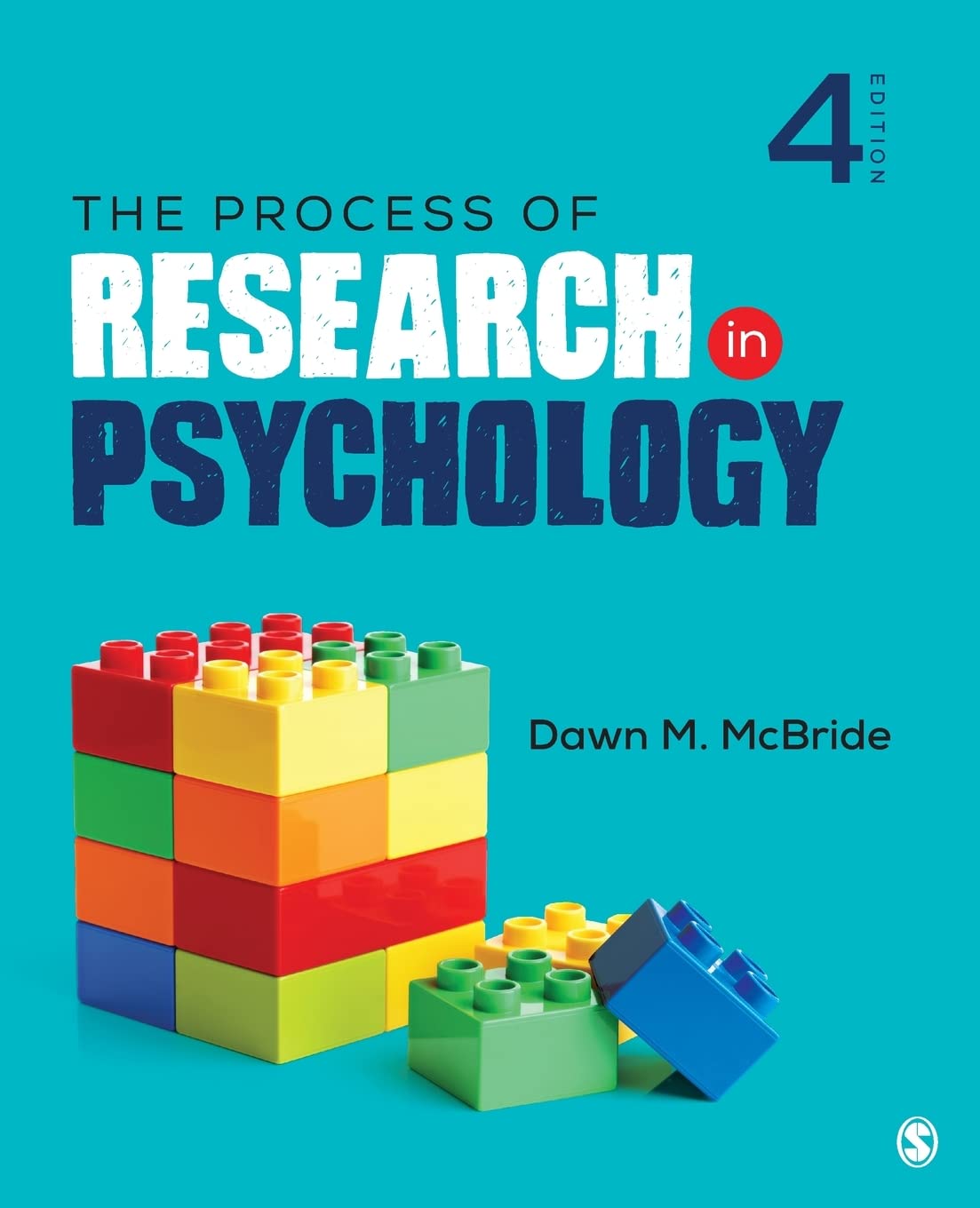

The Process of Research in Psychology
A**A
A must for anyone who wants to learn how to conduct scientific research!
The best Experimental Psychology textbook for undergraduate level! Each chapter contains all the theoretical concepts and practical examples that will guide you to learn every since step of the scientific method. A must-read if you want to develop a solid statistical and research-based foundation! 10/10!
D**
terrible class helpful book!!
This book was the only reason I passed that horrible class. It used appropriate and simple language within the terms of stats of course but very easy to understand. Slight recommendation if you take this class with a bad professor like I did read, highlight, and review a week b4 the exam I promise you'll do fine.
B**A
Format is Weird
Not a big fan of the Kindle format, I honestly prefer a pdf format but for a rental this was a pretty good deal!
C**
Good
It’s ok
A**S
Could Be Better
While most of this book is pretty solid as a point of references, the author seems to have some odd ideas as to what science is all about, which makes me question her research.In the very first chapter the author makes a rather odd comparison between psychology and climate science. She basically asserts that "climate deniers" are simply confused because they are paying attention to facts that do not support what the majority of scientists currently believe. The author seems to be under the impression that science is decided by consensus, rather than by provable facts. This is a rather disturbing analysis.On the next page the author states that the public gradually came to accept the fact that the Earth revolves around the sun (instead of vice-versa) because it became the accepted science of the day. This is also quite utter nonsense. The public came to accept that this was the case not because they simply took the majority of scientists at their word (the same scientists who a generation earlier had told them that the Earth was flat) but because of the fact that it could be proven through simple to grasp observation and through the infallibility of mathematics. It is easy for people to see with their own eyes the facts in front of them, especially knowing that math never lies and is not a matter of opinion or reliant upon consensus.Comparing the field of psychology to the science of physics and astronomy is a very poor choice, IMHO. Keep in mind, less than 100 years ago the vast consensus of Psychologists was that all homosexuals were mentally ill and that homosexuality was a psychological "disease" that could perhaps be cured through therapy or medication. Sadly, Psychology is still a "science" in which "proof" simply exists due to popular consensus among those in the field. Nothing in the understanding of psychology has really changed or improved in well over 100 years, other than the culture of the time that comes to a popular consensus. There is nothing in the field to prevent psychologists from changing their minds in another 100 years back to saying that homosexuality is a mental disorder, which does not bode well for psychology being considered a branch of science.As for the rest, I felt that the presentation was a bit choppy at times, especially in regards to statistics and how they represent scientific findings. It definitely raised many valid points though.
****
Strongly dislike
Painfully tiny font in an all around painfully overwritten textbook. It reads like word salad.I love psychology and I love research yet I loathe this book.
V**N
Basic Text for Undergraduate Students in Psychology
This textbook focuses on the fundamentals of doing research in psychology and it's clearly aimed at undergraduate students who are Psychology majors. However, its general discussion on how to do research would be applicable to almost any field. The book outlines all the steps involved in research: how to come up with a topic, how to do a literature review before embarking on said topic, how to use keywords and search for articles using respected databases such as PsychINFO. Perhaps the most important part of the book is how to evaluate the data you find and how to analyze data for accuracy, evidence of bias, tabulating and quantifying empirical evidence, etc. It's illustrated throughout with diagrams, graphs and charts. Each chapter has a summary of the main points at the end. The author uses a lot of contemporary examples to illustrate her points such as climate change, terrorism, the controversy over creationism, etc. More conservative readers may be offended at how their points of view may be categorized as "bias". Overall this is a fairly well-written introductory text that will give students the basics for doing research but readers looking for more in-depth information will need to look elsewhere.
A**R
Good intro but not much depth
I would not adopt this for my class- it's not bad but it simply glosses over things almost like a refresher. It lacks depth and academic rigor. Good introduction for non-majors (maybe) but even then, I'm still not sure who the audience is for this book since they would not be engaged in research.
Trustpilot
1 month ago
3 weeks ago